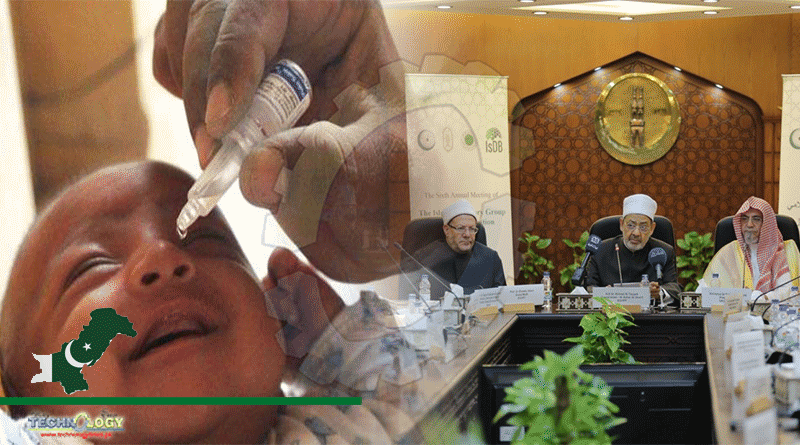The Islamic Advisory Group has appreciated Pakistan’s resolve to end polio, and has re-affirmed its support towards global polio eradication efforts.

The Islamic Advisory Group (IAG) for Polio Eradication has appreciated Pakistan’s resolve to end polio, and has re-affirmed its support towards global polio eradication efforts with a special focus on Pakistan and Afghanistan.
In a statement released after the virtual 7th IAG meeting, the IAG urges religious leaders and influential community leaders in Afghanistan and Pakistan to fully support ongoing polio eradication efforts and mobilize parents and caregivers to regularly vaccinate their children against polio and other vaccine-preventable diseases. The meeting was held at the General Secretariat of the Organisation of Islamic Cooperation (OIC) in Jeddah.
Representing Pakistan, the National Coordinator for the Polio programme Dr. Rana Muhammad Safdar highlighted key achievements such as the implementation of a successful immunization campaign amid COVID-19 to address the widening immunity gap.
The IAG praised Pakistan for its alignment with the Organisation of Islamic Cooperation’s Strategic Health Programme of Action and acknowledged its tremendous support during the ongoing COVID-19 pandemic.
The President of the International Islamic Fiqh Academy Dr. Saleh Bin Abdullah Bin Humaid said, implementation of initiatives in the Islamic world and elsewhere to eradicate polio and improve mother and child health, among others has been hindered by COVID-19, especially as a result of lockdowns; however, we are still hopeful that health awareness has increased among the public and people are now more convinced of the importance of immunization to prevent vaccine-preventable diseases including polio, measles, and rubella.
The WHO Regional Director for the Eastern Mediterranean Dr. Ahmed Al-Mandhari said, “We reaffirm our commitment to the eradication of polio from Afghanistan and Pakistan. The COVID-19 response has shown the value of collaboration among countries and stakeholders in sharing information and technology to mitigate the global ramifications of this health crisis.”
Originally published at The News
